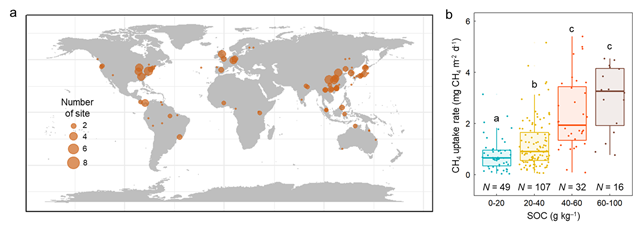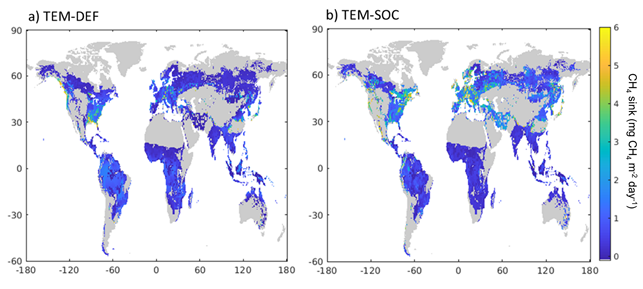New Regulators of Forest Methane Sink Discovered
Professor Hojung Kang’s Team Discovers New Regulators of Forest Methane Sink
Impact of soil organic matter on methane removal on a global scale
Published in the prestigious international academic journal Nature Communications (IF 17.694)

The research team led by Professor Hojung Kang comprises Professor Lee Jaehyun and Ph.D. students Yoon Jungeun and Yang Yerang from the School of Civil and Environmental Engineering at Yonsei. They were the first to identify soil organic matter as a regulator in methane (CH4) sink. This study was published online in the renowned international academic journal, Nature Communications (IF 17.694), on May 30.
Methane is a potent greenhouse gas with a global warming potential approximately 34 times greater than carbon dioxide. The reduction of methane is a critical factor in realizing the carbon neutrality objectives, as can be seen by the adoption of the “Global Methane Pledge”—a plan to achieve a 30% reduction in global methane emissions by 2030 compared to 2020, at the 26th UN Climate Change Conference (COP26).
Through long-term observations conducted in the Gwangneung Experimental Forest and Hannam Experimental Forest in Jeju, the research team confirmed that the methanotroph activity, which metabolizes methane, increases as more soil organic matter exists in forest soils, which is a prominent form of carbon.

[Figure 1. Relationship between methane sink in forests and content of soil organic matter
a) Location of forest utilized for meta-analysis; b) Methane uptake depending on the content range of soil organic matter]
The team’s meta-analysis revealed that the methane sink is enhanced with increasing soil organic matter content in forest soils globally. Soil organic matter is an important indicator of the amount of carbon stored in forests. The more carbon stored in forests, the greater the capacity to absorb methane, a potent greenhouse gas.
Ultimately, the development of a process-based model to estimate global forests’ methane sink by considering the content of soil organic matter led to the discovery that the global forests are absorbing 40% more methane than the existing estimation.

[Figure 2. Global forest methane sink estimated by the process-based model
a) Result of a process-based model that does not consider the content of soil organic matter; b) Result of the newly developed process-based model that considers the content of soil organic matter]
Professor Kang explained that through prior studies, his team found that the annual volume of methane absorption by the soil in Korean forests is equivalent to approximately 6.2 million tons of carbon dioxide. To put this into perspective, that is equivalent to the carbon dioxide emissions of approximately 3.24 million vehicles that each emit 1.92 tons of carbon dioxide per year. Given that 25.5 million vehicles are registered in South Korea, the forest methane sink amounts to approximately 13% of carbon dioxide emissions from vehicles. He emphasized this research outcome’s significance, stating that “these findings can contribute to achieving the 2050 carbon neutrality by maximizing methane sink by Korean forests.”
Recommended Articles
Professor Jong-Hyun Ahn
Novel technique for producing high-resolution micro-LED displays
Professor Seong Chan Jun
Professor Donghyun Kim
Array of hope: Up close and personal with mitochondria in neurons